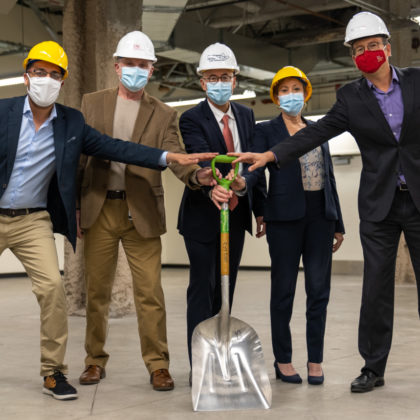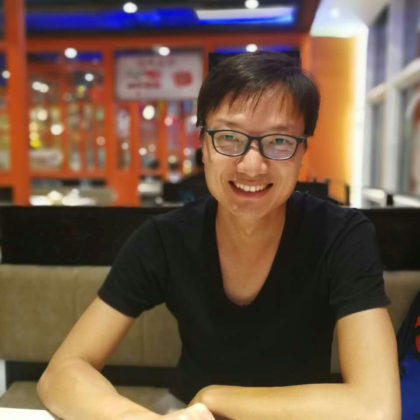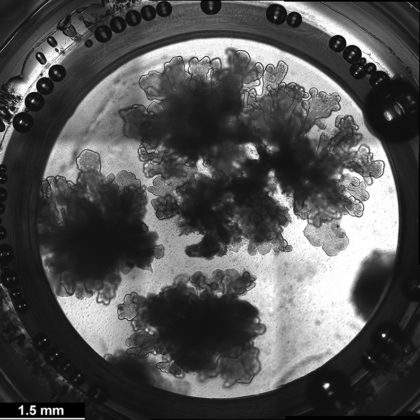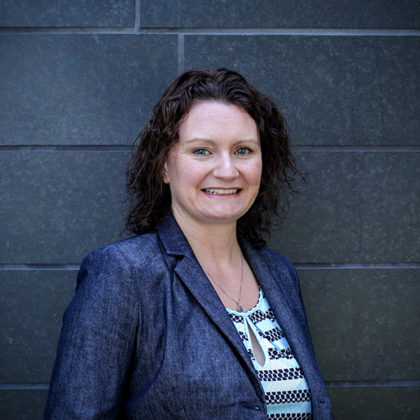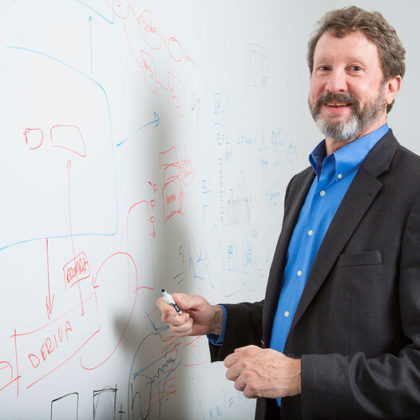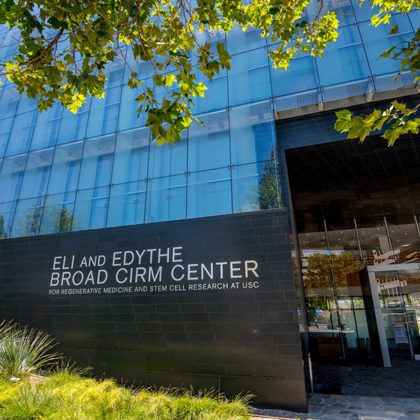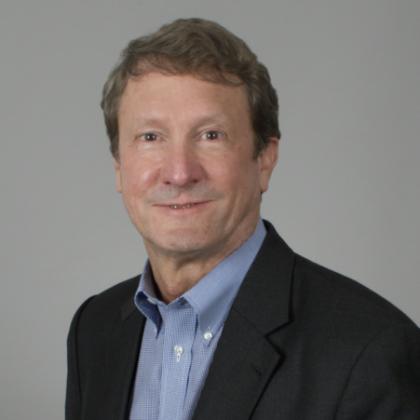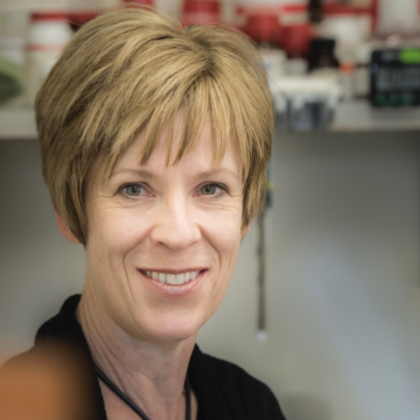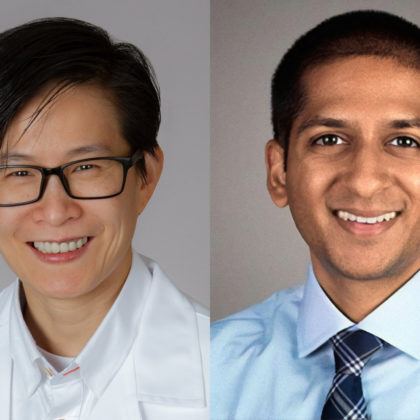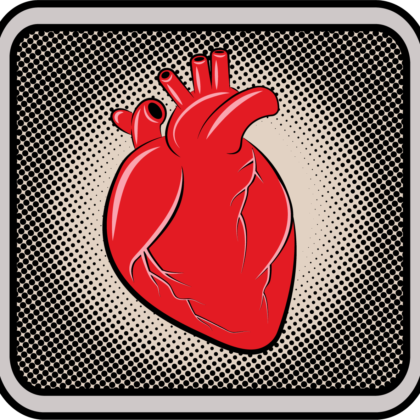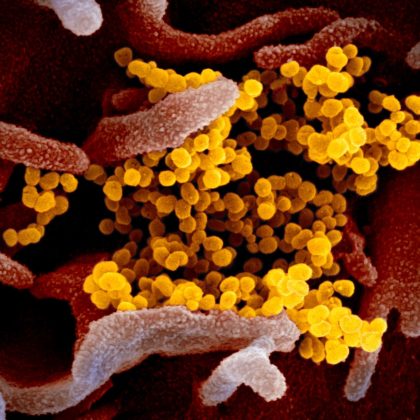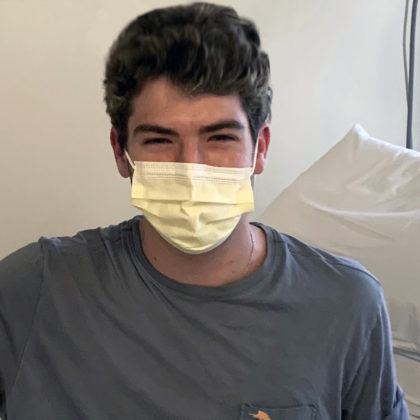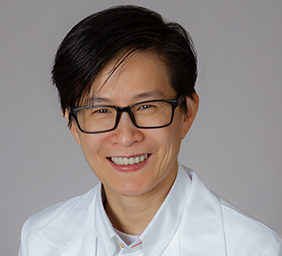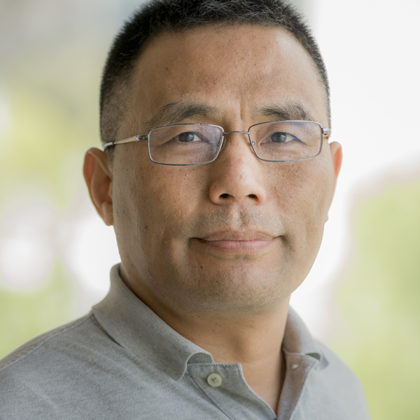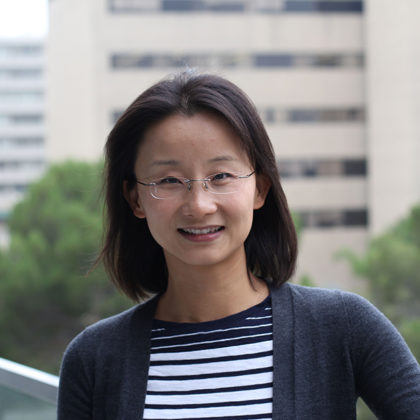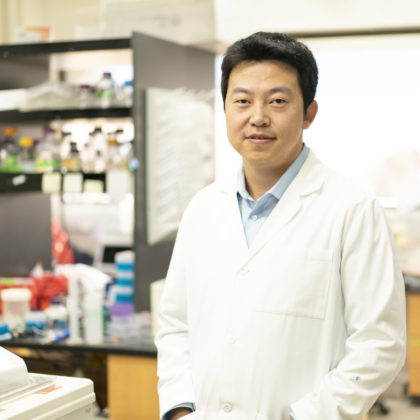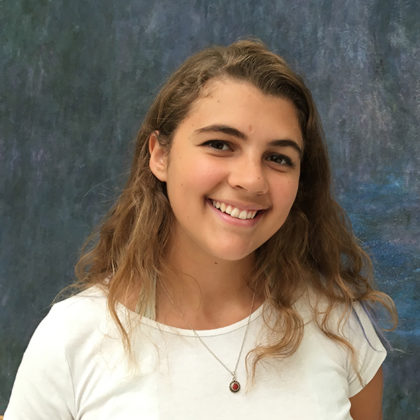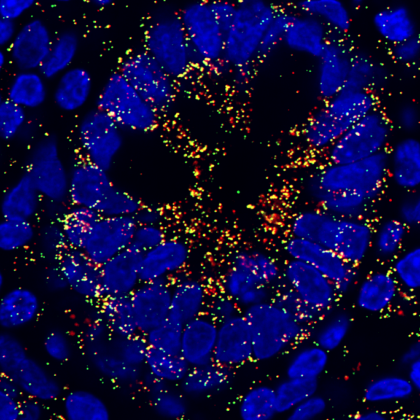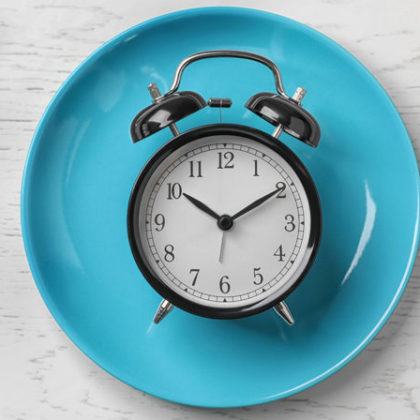CHLA, Keck School, Keck Medicine and USC Norris partner on cell therapy program as construction on new facility begins
The essence of translational medicine is taking an idea from the drawing board and “translating” it into a real-world treatment that helps patients. The winding road of that process takes plenty of …
For USC scientist Xi Chen, a chicken is more than just an egg’s way of making another egg
USC postdoctoral researcher Xi Chen knows that you have to break a few eggs in order to grow chicken stem cells. His work on maintaining embryonic stem cells (ESC) from chicken eggs …
USC scientist Ya-Wen Chen receives American Lung Association grant to advance stem cell-based lung therapies
USC Stem Cell scientist Ya-Wen Chen hopes to pioneer a new approach to regenerating damaged lung tissue, with support from a Catalyst Grant from the American Lung Association (ALA). The award provides …
USC Stem Cell scientist Amy Ryan studies diseases from cystic fibrosis to COVID-19
Scientist Amy Ryan has never lived according to a fixed plan. Instead, she has followed where life has led her—to a position as an assistant professor of medicine and stem cell biology …
USC biological imaging innovator elected to National Academy of Medicine
Scott Fraser, Provost Professor of Biological Sciences, Biomedical Engineering, Physiology and Biophysics, Stem Cell Biology and Regenerative Medicine, Pediatrics, Radiology and Ophthalmology, has been elected to the National Academy of Medicine. Fraser, …
California’s biggest stem cell experiment: The impact of the stem cell ballot proposition at USC
In 2008, USC broke ground on an $80 million building dedicated solely to stem cell research and regenerative medicine. The plans called for a monolithic structure clad in black marble and reflective …
USC’s Scott E. Fraser elected to National Academy of Medicine
USC biophysicist Scott E. Fraser, PhD, has as been elected to the National Academy of Medicine, the organization announced Monday. He’s among 100 new members of the Academy. “For integrating biophysics, quantitative …
Gene therapy research for HIV awarded $14.6 million NIH grant
An HIV research program led by scientists at USC and the Fred Hutchinson Cancer Research Center has received a five-year, $14.6 million grant from the National Institutes of Health. The team is advancing …
The Baxter Foundation supports USC research on epilepsy and lung injury
The Donald E. and Delia B. Baxter Foundation is supporting innovative biomedical research at the Keck School of Medicine of USC by granting $100,000 awards to two assistant professors: Vishal Patel, MD, …
Hunting for heart cells that can grow back after an injury
Hearts are tough organs. Over the course of a lifetime, they beat ever second of every day, keeping the entire body nourished with life-giving blood. But, even with all that stamina, heart …
USC Stem Cell scientists use “mini-lungs” and lung models to understand COVID-19
USC scientists are testing out experimental COVID-19 treatments on human “mini-lungs” and lung models, grown in the laboratory using stem cells. With names such as organoids and lung-chips, these simplified, lung-like structures …
New award supports study of why females age differently than males
A new research project led by USC Leonard Davis School of Gerontology Assistant Professor Bérénice Benayoun aims to learn more about why female mammals, including humans, age differently than males. Sex dimorphism …
Amid COVID-19 fears, USC Spirit Leader donates stem cells for leukemia patient
When Alec Fisher signed up as a potential bone marrow donor two years ago, he didn’t expect to hear back for a while, if at all — and certainly not in the …
USC Stem Cell scientist Ya-Wen Chen grows miniature lungs with maximum potential
As the SARS-CoV-2 coronavirus outbreak escalated into a pandemic, USC lung researcher Ya-Wen Chen expected to be spending a lot of time at home, sheltering in place. “At the beginning of the …
Shanghai Cell Therapy Group launches collaboration with USC researcher to improve the ex vivo expansion of hematopoietic stem cells for clinical applications
Shanghai Cell Therapy Group (SHCell) recently entered into a six-year research collaborative project with Professor Qi-Long Ying from the University of Southern California (USC). Through the project, sponsored by $3.6 million from …
USC Stem Cell scientist Rong Lu wins an NIH Emerging Investigator Award
Millions of blood cells are regenerated every second. To study the unique properties of individual blood forming stem cells and how they contribute to aging, leukemia and other medical conditions, USC Stem …
Better cancer treatments may lie ahead thanks to Yong (Tiger) Zhang and USC engineers
A USC School of Pharmacy-led team has engineered a new, faster way to make drugs that precisely target malignant cells – while leaving healthy tissue undamaged – that could lead the way …
Countdown to Commencement: USC Stem Cell master’s student Kalya Stanten follows the science
By following her love of science, USC master’s student Kalya Stanten has found herself in some very interesting places—including a virology lab at the outset of the COVID-19 pandemic. “I’m in Paula …
The Broad Foundation brings together stem cell scientists, engineers and physicians at USC and beyond
Developing new stem cell therapies requires more than a solo biologist having a eureka moment alone in the lab. Real progress relies on collaborations between biologists, engineers and physicians. That’s why The …
What and when we eat affects our immune system. Here’s how.
Professor Valter Longo, director of the USC Longevity Institute, is investigating how fasting and diets that mimic fasting’s effects can help immune function, including vaccine efficacy and the body’s response to infection …
